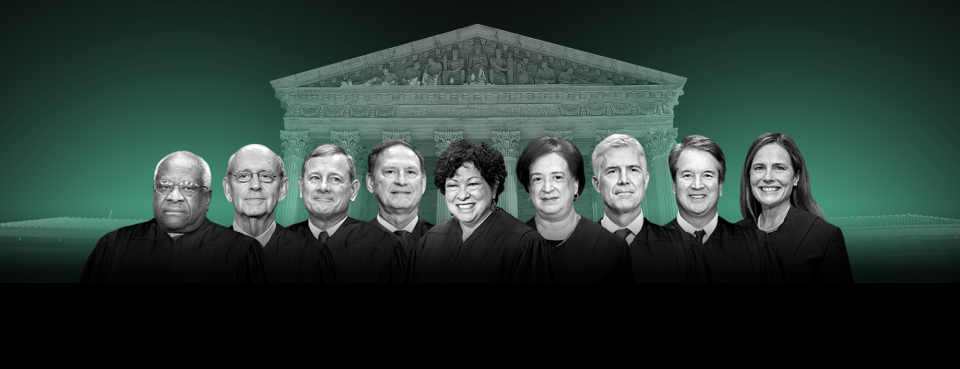The U.S. Supreme Court said it would hear arguments on an expedited basis on President
The justices will hear both cases at a special Jan. 7 session, weighing whether to let the rules take effect in the face of a barrage of legal challenges. The cases will test the power of the federal government to tackle a pandemic that has killed more than 800,000 Americans.
The more sweeping clash involves an Occupational Safety and Health Administration rule that requires employers with 100 or more workers to make them get vaccinated or be tested regularly.
The justices will hear arguments from business groups and Republican-led states. They argue that OSHA exceeded the powers Congress gave the agency and that the federal government lacks constitutional authority to issue such a sweeping mandate.
The OSHA rule had been set to take effect Jan. 4, though the agency had said it wouldn’t start issuing citations before Jan. 10. A federal appeals court backed the administration.
The other rule, issued by the Centers for Medicare & Medicaid Services, requires vaccinations for employees at facilities that participate in the Medicare and Medicaid health-care programs. The rule requires facilities to provide medical and religious exemptions.
Lower courts are divided on the CMS mandate and the Biden administration is currently barred from enforcing the rule in about half the country.
The Supreme Court has
The Jan. 7 argument will be the third expedited session of the court’s current term, joining a clash over Texas’ ban on most abortions after six weeks and a case about the role of ministers in the execution chamber.
The OSHA cases are National Federation of Independent Business v. Department of Labor, 21A244, and Ohio v. Department of Labor, 21A247. The CMS cases are Biden v. Missouri,
(Updates with details about cases, starting in third paragraph.)
To contact the reporter on this story:
To contact the editors responsible for this story:
Greg Stohr, John Harney
© 2021 Bloomberg L.P. All rights reserved. Used with permission.


